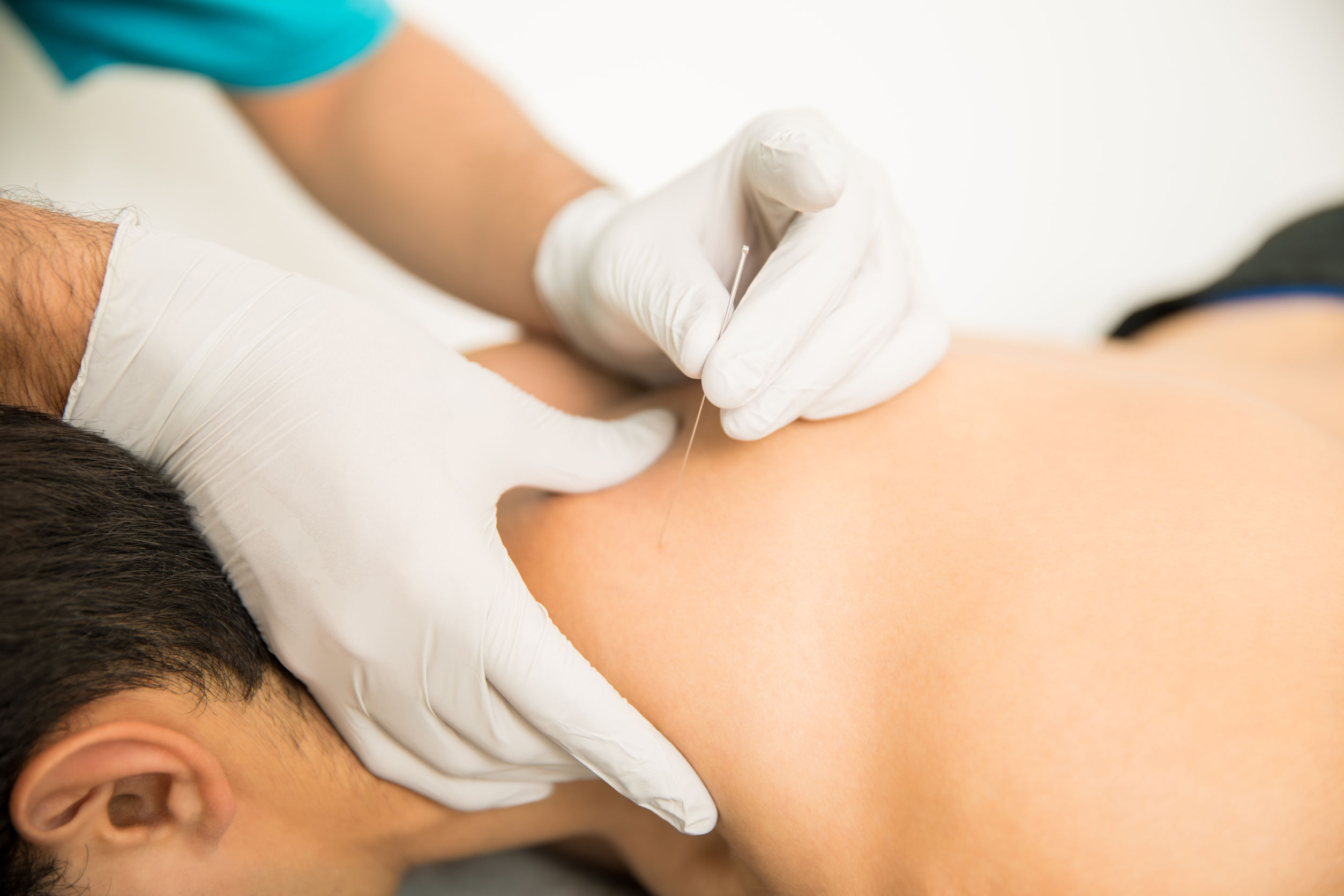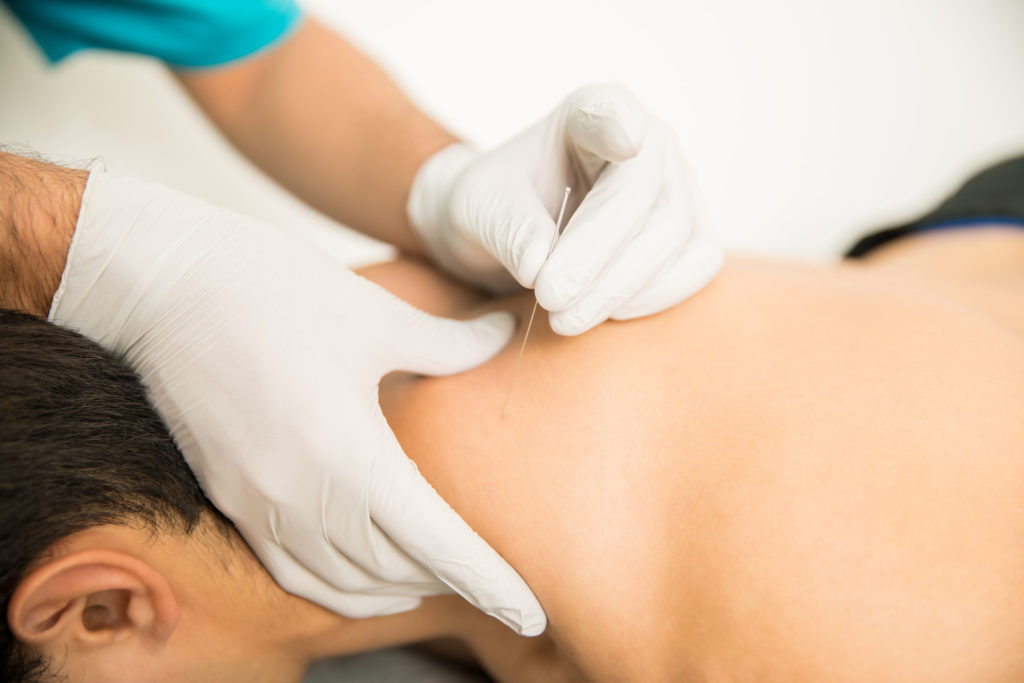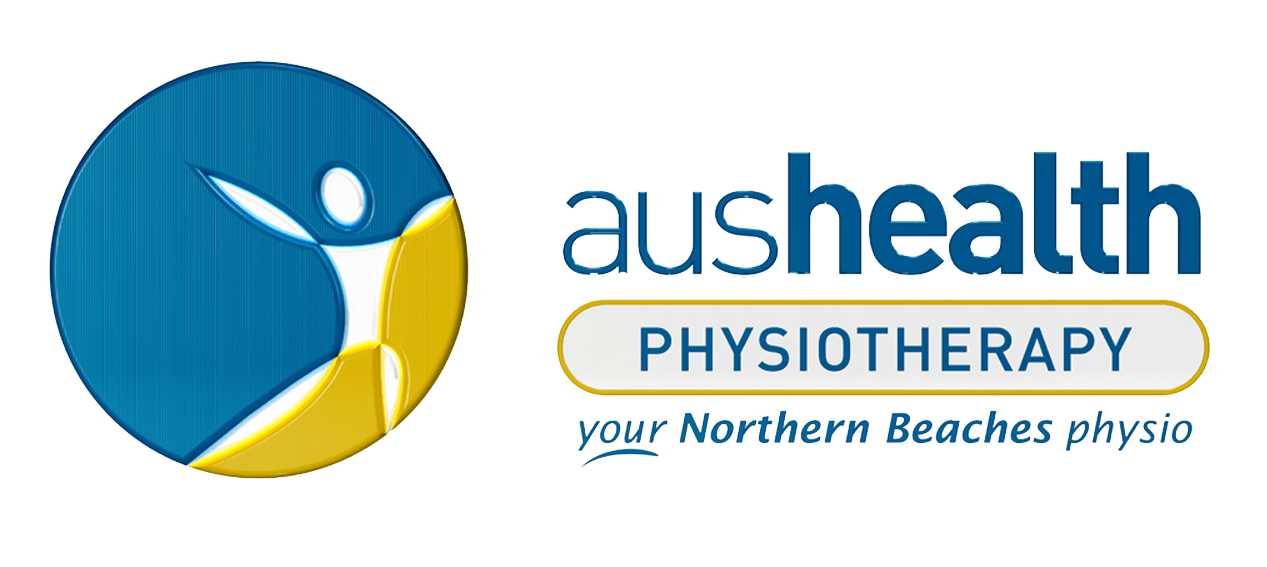
At Aushealth Physiotherapy we love the effect of Dry Needling due to the quick changes it produces in muscles and it long lasting effects!
But, the most common question that we get is “Is Dry Needling the same as Acupuncture?” Not quite…

So, What is the difference between Dry Needling and Acupuncture?
Dry needling (or formally Myofascial Trigger Point Needling) simply put is inserting needles into tight muscles to relax them. Whereas, acupuncture is chinese medicine based on inserting needles into specific points to allow for free flow of energy in the body, aka ‘Qi’.
The Dry Needling technique involves inserting a sterile single- use needle into a trigger point (which is a taut band of muscle) determined by an assessment by your Physiotherapist.
Trigger points are hyper-irritable spots in your muscles that create a pain referral pattern when pressure is applied to it -> it is often referred to as a ‘knot’. Dry Needling is used in addition to other treatment techniques or can be used alone
What’s wrong with having a ‘trigger point/ knot’?
Trigger points are sore points on the body, they cause pain if touched. They also make the involved muscle weak, reducing your movement and efficiency for that joint and can cause big problems by altering the way the muscle responds to commands. This can lead to short and long term issues in the involved area.
How does it work?
Trigger points have high electrical activity. Stimulating the trigger point with a needle ignites a brief burst of muscle activity within the muscle, that then resets and reduces the electrical activity in that area. This reduces tightness in the muscle, allowing the muscle to return to a normal pattern of contract/relax (instead of constant contract). This also reduces pain!
What is it best for?
-Neck, upper back and shoulder pain
-Headaches
-Leg, Knee, hip and lower back pain
-Joint and muscle tightness or pain
…pretty much everything!
So, what causes Trigger Points?
There are many factors that can lead to the increased formation of trigger points in your muscles. You might not be surprised to hear that stress and fatigue can be held responsible, but even things like caffeine, nicotine from smoking, and being cold can affect it too! Our Physiotherapists will be happy to explain this further for you and work out what your causes are.
For Physiotherapists, our main concern (after we get you some symptom relief) is that these trigger points don’t come back. We will always pair Dry Needling with either a stretching or strength exercise after to ensure your body learns to use the muscles correcting now the triggers are released.
To see if Dry Needling is right for you, our Physiotherapists would be very happy to chat to you and explain it more. Give us a call on 9905 0048 or contact us online and we will answer your questions.

